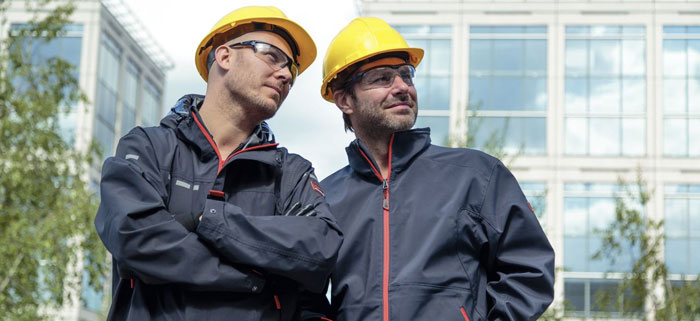Known as the ‘silent killer’, carbon monoxide is a hard-to-detect toxic gas that can occur at any time within an enclosed space. This highly poisonous gas can be lethal to animals and humans if overexposure occurs, but it can be difficult to detect without the correct equipment as it is naturally odourless and colourless.
Carbon monoxide (CO) is produced from the incomplete burning of carbon-based fuels such as coal, oil, charcoal, wood and natural gases. Carbon dioxide (CO2) is the usual by-product of combustion but if the oxygen content in the atmosphere is too low then CO will be formed instead. It is commonly produced within the home from household appliances such as boilers, furnaces, water heaters, fireplaces and stoves.
Carbon monoxide poisoning is a danger that more commonly effects domestic dwellings, although serious incidents have taken place within recent years that highlight the risks posed to workers in an industrial environment.
In January 2018, a worker from Construction 360 Ltd was injured after losing consciousness while using a petrol-driven saw within an enclosed area. The worker was taken to hospital and diagnosed with carbon monoxide poisoning, which prompted an investigation by the Health & Safety Executive (HSE). It was determined that Construction 360 Ltd had failed to carry out appropriate assessment of the area and had failed to plan a safe system of work. They were subsequently fined £15,000 for what was determined to be a completely avoidable incident. Fortunately this wasn’t a fatal accident, but it well could have been.
Many pieces of machinery found in the workplace can emit CO, such as propane-powered forklift trucks, floor polishers, space heaters, gas-powered concrete cutters, pressure washers and air compressors. These devices can prove deadly to workers if operated within a confined space, and therefore require ventilation to be provided.

Carbon monoxide is easily absorbed through the lungs and into the bloodstream where it stops oxygen from being transported around the body. This will cause organs such as the brain, nervous tissue and heart to stop working properly and prolonged exposure can cause brain damage and heart disease.
The main carbon monoxide symptoms are headaches, nausea, dizziness, vomiting and weakness, which causes many people to confuse it with the flu and not seek help immediately. There is also a general assumption that CO is not much of a danger; however it is actually the main cause of poisoning in the UK, contributing to over 10,000 illnesses and up to 50 deaths per year.

CO is impossible to detect with the naked eye. It has no colour, no smell, no taste and doesn’t irritate the skin. To protect yourself from CO poisoning, you must first minimise the risks:
- Make sure that all of your fuel-burning appliances are inspected by a trained engineer every year.
- Install ventilation in areas where CO is likely to build up.
- Ensure that all new fuel-burning appliances are professionally installed and regularly serviced according to manufacturers’ instructions.
- Locate fuel-burning appliances in outdoor spaces where possible.
However, minimising these risks is no guarantee of safety. The safest method to protect yourself from the dangers of CO is to install carbon monoxide detectors in any areas of risk. A reliable CO detector serves as an early warning if any CO is leaking into your home, and will provide an audible alarm for all persons nearby to hear.
It is recommended to place carbon monoxide alarms nearby any heat producing item in your home or workplace, as these are the most likely places for a leak to occur. These alarms will also offer stability against changing temperatures and humidity, avoiding any possibility for false alarms from other household gases such as ammonia. Many carbon monoxide monitors are fitted with both batteries and hardwiring, to ensure that there is a back-up should one power supply fail.
Here at Rockall, we have a range of carbon monoxide monitors available for both domestic and industrial applications. Take a look here to see our full range of CO alarms.
If you need more information or you have any enquiries, please contact us on 0845 3300 447 or email our team at info@www.rockallsafety.co.uk.
Posted by Laura Dronfield





